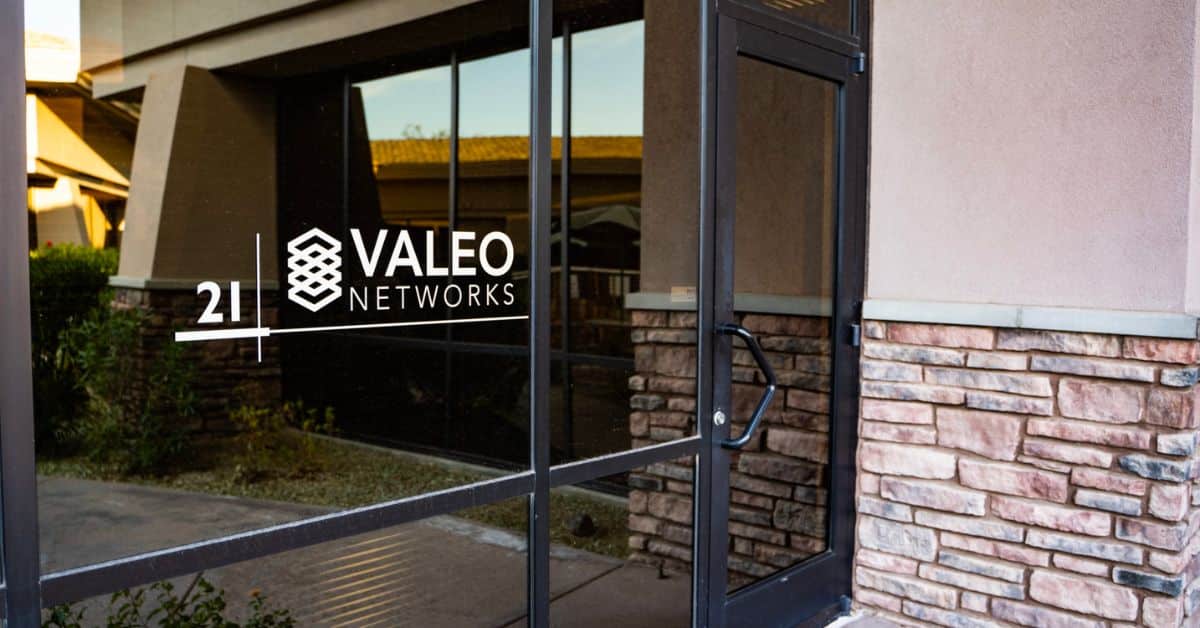Stay Alert to These Modern Cybersecurity Threats
The business world is becoming increasingly dependent on digital structure and assets. In 2020, it is imperative that your organization stay aware of...
4 min read
Valeo Networks : Sep 20, 2018 12:00:00 AM
Companies large and small increasingly turn to cloud platforms to run their business and store important information. Keeping this information safe and secure should be a high priority for every business owner, especially as cybercrimes continue to increase every year.
Small businesses were the targets for 58% of the 2,200 data breaches reported last year according to Verizon’s Data Breach Investigations Report. The majority of data breach tactics are hacking (58%) and malware (30%) followed by other events. (For more details, read our blog “Data Breaches by the Numbers”.)
Keep reading to learn more about IT security and the biggest threats endangering your customers and your business.
The Seven Biggest Information Security Threats You Should Know
Cybercrime continues to evolve. The problems companies dealt with 10 years ago barely compare to the new security threats out there now. Here are the seven biggest threats to your business’s IT security.
#1. Unsecured Websites
One of the biggest threats to your business’s IT security is also the simplest. Internet security continues to deteriorate as more and more legitimate websites find themselves pumped full of malicious redirects. The cause of these breaches does not lie with the webmaster’s computer server alone, but with an unsecured website.
An unsecured website leaves your business open to all kinds of fraudulent activities. Common vulnerabilities that could affect your website include:
It may not be your application software or web server that gets hacked. Many hackers know how to go through banner advertisements and even malware creators will buy ad space on occasion. Another thing to keep in mind is that if you host multiple websites on one server if one gets compromised they all could be.
#2. Online Crime Syndicates
Much like traditional crime syndicates, cybercriminals often organize into professional groups. To increase the reach of their crimes, they form what appears to be a legitimate business. Then they recruit other hackers within their established hierarchies. These cybercrime syndicates operate much like Mary Kay or Avon with each person bringing more people into the group.
Small hacker groups still exist, but fewer and further between. These cybercrime organizations make up a much larger portion of IT security threats. Some even have their own Wikipedia pages because they operate so much in the open like the Russian Business Network.
#3. Small-Time Con Artists
Small-time hacker groups and con artists still pose a decent threat to businesses. These small-time hackers often steal personal and login information by redirecting legitimate sites to fake ones. This is easily done through phishing emails and phone calls.
They tend to stay in the realm of fraudulent banking transactions and credit card purchases to make money quickly. They then launder the stolen money through mules, e-banking, and electronic cash distribution. Cyber money laundering has become a business in and of itself.
These money-laundering entities take a large percentage of the money without asking questions. They even advertise on public bulletin boards online. More established launderers offer software specials, bidding forums, 24/7 phone support, and customer references. They work hard to make online criminals better at their jobs.
#4. Activist Hackers (Hacktivists)
Hacktivists differ from most other cybercriminal groups since many prefer operating out in the open. Political activist hacking groups, like the well-known Anonymous collective, have been around for years. However, the increase in public acceptance has some people claiming hacktivism as a legitimate form of activism.
Hacktivists generally intend to embarrass and create a negative media storm around their chosen target. They may do this by hacking into their private information to reveal misdeeds. Sometimes they commit DDoS (distributed denial of service) attacks.
Whatever the course of action chosen, the end goal remains the same. They want to cause the target monetary pain and encourage them to change the unwanted behavior. Innocent bystanders occasionally end up as collateral damage in these controversial hackings.
#5. Sophisticated Malware Creator Teams and Comprehensive Malware
Malware creators in the past were generally one person looking to make some money or steal identities for their own use. Massive malware creation teams now exist to make vicious malware with very specific objectives. This makes it much harder to predict and prevent a malware attack.
Sometimes this malware does not attack only one specific customer or security defense. Some malware creators now make comprehensive malware programs that offer an all-in-one functionality. These sophisticated malware programs even come with management centers to track the malware’s success.
#6. Corporate Espionage and Intellectual Property Theft
Corporate espionage and intellectual property theft are two other major information security threats. If your business creates new ideas or designs, you may be at risk of having that private intellectual property stolen or exploited.
Often hackers performing this kind of data breach break into the IT assets of a company and then dump all the passwords. Then slowly over time, they steal confidential information. Things like business plans, financial records, new product ideas, patents, and military secrets. The hackers then pass the information along to interested parties for a fee.
#7. International Cyber Warfare
Most business owners will likely not encounter any national or state cyber warfare. However, if you contract with the government, it puts you at much greater risk.
Covert cyber warfare operations focus on the monitoring of the opposition and taking out their ability to function. The fallout of these complex, covert methods can impact businesses outside the government realm as well.
A great example of this occurred in 2014 when North Korea hacked into Sony Pictures film studio. The North Korean government did not appreciate Sony’s new film The Interview. The film featured a comedic assassination attempt on the North Korean dictator, Kim Jong-un.
The group of hackers released confidential information about Sony’s employees and future films. They also threatened cinemas screening the film with terrorist attacks. This caused major cinema chains in the United States to not screen the film. In response, Sony canceled the film’s premiere and sent it straight to digital download instead.
In Need of Enterprise-Class IT Security?
Learning about all these threats to information security can be a daunting task, even for a very technically savvy IT team. How do you prevent a data breach and keep hackers out of your vital information? What steps can a small- to medium-business take to understand its vulnerabilities in order to protect its mission-critical data? Smart businesses have security assessments performed by security experts. If your business is interested in taking the first steps, Valeo Networks offers a free network scan for starters.
Already have areas of concern and want to leverage cutting-edge technology to defend against cyberattacks? Valeo Networks has next-gen cyber defense products and solutions well known in the security space that can add strong defense layers to your network.
Contact Valeo Networks today for a consultation (800) 584-6844 or sales @saalexIT.com.
Download a free White Paper on Cybersecurity: What Every Small Business Needs to Know

%20(1).webp)
The business world is becoming increasingly dependent on digital structure and assets. In 2020, it is imperative that your organization stay aware of...

With millions of cyber attacks occurring each day, how are you protecting your company’s data from inside threats? Do you limit your employees access...

Rockledge, FL and Plymouth Meeting, PA (September 1, 2022) – Valeo Networks, a leading Managed Security Service Provider (MSSP), today announced it...

With cutting-edge technology and quality customer service,
you’ll find everything you need to help your company soar
with Valeo Networks.
1006 Pathfinder Way
Rockledge, FL 32955
Business Hours:
M-F: 8AM-9PM
© 2026 Copyright Valeo Networks. All Rights Reserved.